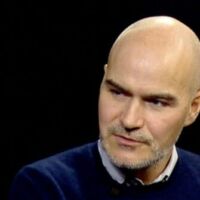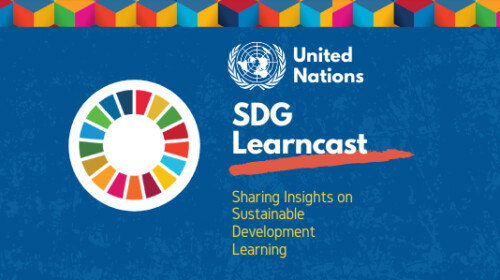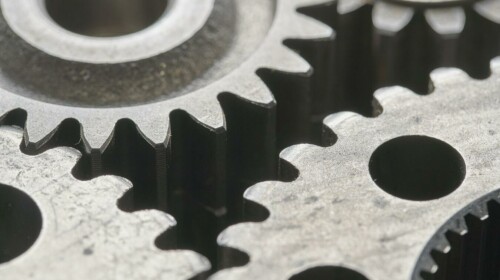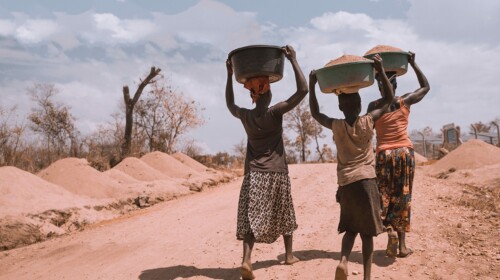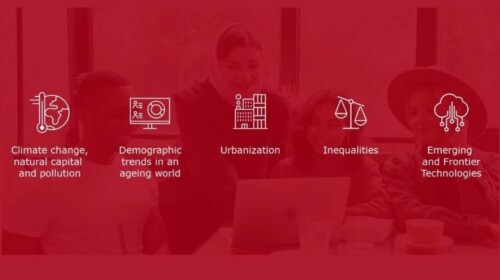The data revolution is the unprecedented increase in the volume and types of data—and the subsequent demand for them—thanks to the ongoing yet uneven proliferation of new technologies. We need data to formulate sustainable development policies. But it requires that we collect accurate data and use this evidence to inform policymaking. The use of evidence derived from data in policymaking requires the capability to collect and analyze accurate data and a way to make evidence available to decision-makers.
In this episode, we will speak with Dr. Emmanuel Letouze, the Director of Data-Pop Alliance, a not-for-profit, non-governmental organization, which he founded in 2013 with MIT Media Lab, Harvard Humanitarian Initiative, and ODI. This episode will talk about ensuring that vulnerable groups are not left behind in the data revolution and the advancement of new technologies.
Want to learn more about sustainable development and learning? Subscribe to SDG Learncast on podcast apps.
[Transcript of the episode]
Paulyn Duman: Welcome to the SDG Learncast with me, Paulyn Duman. In every episode, I bring you insightful conversations around the subject of sustainable development and learning, helping us all to achieve a sustainable future.
With us in this episode is Emmanuel Letouzé. Dr. Letouzé is the director and co-founder of Data Pop Alliance, a not-for-profit, non-governmental organization, which he founded in 2013 with MIT Media Lab, Harvard Humanitarian Initiative, and ODI.
Welcome to the SDG Learncast Emmanuel!
Emmanuel Letouzé: Thank you very much for having me.
Paulyn Duman: Data revolution is the unprecedented increase in the volume and types of data—and the subsequent demand for them—thanks to the ongoing yet uneven proliferation of new technologies. We need data to formulate sustainable development policies. But it requires that we collect accurate data and use this evidence to inform policymaking. The use of evidence derived from data in policymaking requires the capability to collect and analyze accurate data and a way to make evidence available to decision-makers. In this episode, we will speak about ensuring that vulnerable groups are not left behind in the data revolution and advancement of new technologies.
Paulyn Duman: Could you tell us a bit more about yourself?
Emmanuel Letouzé: Sure. First of all, I’m speaking from Barcelona where I’m moved last year after spending 17 years in New York and on the west coast. During those years in the US, I really started getting interested in the intersection of data, big data, and then increasingly AI and in development, human development, sustainable development and democracy.
I studied political science, development, economics, sociology a little bit and then demography. I did my PhD in demography.
Around 2010-2011, I really got interested in, actually fascinated by the rise in the emergence of the data revolution. Prior to that, I worked at UNDP in New York for a couple of years.
Paulyn Duman: What is important in our episode today is that as we know, the world is drowning with data and information, and when you go on social media, it just affects the way we live, the way we make decisions. From a book that I’ve read, it says that the amount of input that we receive in a week is most likely the amount of input our ancestors from thousands of years ago receive in their entire lifetime.
My question to you is, in a lot of ways, data and technology is causing a lot of disruptions and uncertainties and perhaps more of technology and as a society, how can we interact and shape technology, so that it helps us rather than distracts us.
Emmanuel Letouzé: Yeah, it’s true that we seem to be drowning as you said in an ocean of data. There is the perspective that data kills facts, that we have so much data that we can tell apart, what’s just new noise and what are facts. The technologies and the platforms that both create and use data are also polarizing. Societies have a harder time coming together and making compromises.
So with more technologies with more data, we are in this kind of like loop of wanting immediacy. It’s the immediacy of wanting to react to something. We want to click on a button and have something new right away. We want to respond to comments right away.
But technology is neutral. What does it mean? It means that if you have a hammer, which is a form of technology, you can hang a frame or you could, you can kill someone. And so by the same token with technology, you can use digital technologies in many different ways.
Another cliche, which is nonetheless true is that technology is a magnifier of human intent and capacity. People who are driven by purely profit don’t really care about social inequities, who don’t really care about environmental degradation and climate change because that’s not part of their mental software. Then they are the ones who have these very powerful tools at their disposal.
And so it magnifies their intent and their intrinsic capacities. And so I think that it leads us to a world that is more unequal. Definitely, it’s unsustainable from an economic standpoint, from an ecological standpoint. And in many ways, from a political standpoint. It depends on whose intent and whose capacities.
Paulyn Duman: What insights have you picked up along the way that could perhaps help us navigate this scale and speed of technology and data. And of course, the issue of governments not being able to keep up with the private sector with technology, and also because of the system that we are in, they are also most likely not pro poor when it comes to the development of technology.
Emmanuel Letouzé: One frustration that I’ve had is that there were two camps in the data revolution. So you had the more like traditional official statisticians, policymakers and social activists, who were very wary and worried about the data revolution and the advent of big data. So there was a lot of skepticism or outright rejection.
On the other end of the spectrum, you had the kind of engineers, computer scientists, Silicon Valley-type of people who were arguing there are always resistance to change and creative destruction. [They say] the industrial revolution happened and everything’s better off, and we’ve done this in the past, we’ll do it again.
It has advantages for instance, just one example for, public health or individual health, in detecting cancer. Those advances are breathtaking and they will dramatically change the way we were able to prevent like these in and many others in agriculture and education, many other advances.
But still the argument that let’s say, like the Pro-Tech and some of whom are still making those they’re very simplistic Pro-Tech arguments that yeah technology is going to help and we need AI everywhere. I think just completely missed a lot of points and they do so because the people who made those arguments, it may sound like you self-serving or self-aggrandizing, but don’t know the world.
You believe that there are technical solutions to almost everything. But then if you go to countries in the west, in the Sahel region, if you go to Asia, if you go to Burkina Faso, if you go to Chad, if you go to South Sudan, if you go to Haiti, then you have to ask yourself, what have these new technologies really brought?
What have been the advantages? What have been the disadvantages? And then from that, you move on to the global scale. What I would like at least is to have some humility on the part of the people who push techno-solutions to at least reach out to anthropologists, to sociologists, to historians, to activists, to local communities and ask them “Ah, so you live on say $2 or $3 a day. And a lot of those countries are non-democratic by any stretch of the imagination. So maybe in our theory of change, we could start there. But yeah, I would, at the very least want us to take stock of where we are, what’s been happening over the past 30 years or over the past three centuries and try to course-correct.
Paulyn Duman: When we think about solutions and those solutions might have technology as part of the solution, and data supporting the formulation of the solution, we have to think whether we are in a bubble, which means that what you just said ‘okay, but which country are you in?’
And even if you bring a technology there and it worked in your place or in your country or in some countries, some reports also package them as best practices, but it does not mean that you can directly translate those technological solutions to a specific country without understanding that context.
My question is in what way can data and technology reach the most vulnerable groups, especially if they have been perpetually left behind by the systems that we currently have.
Emmanuel Letouzé: I absolutely believe in the social power of measurement, of measuring things. Then the MDGs, and then the SDGs, and now ESG indicators, the human development index.
It is all of these frameworks are based on the notion that if you measure something, then it will help you affect this something. So I would say first, I believe in that kind of like new theory of change, then it feeds into science and political debates and discussions. You can hold people to account. What you measure is also fundamental. If you decide that you’re going to measure and focus on GDP, then that has implications for the kinds of policies that you make.
Now we know, and we’ve known for many years and decades, that GDP is a pretty bad indicator and an objective to optimize because it overlooks inequities and external negative externalities on climate and the environment. But it does mean in a sense that measurement is a powerful tool to drive decisions, policies, behaviors.So I believe in measurement.
Going back to my argument or the example about the West Side or Haiti or Bangladesh, we should start by asking what are the problems, not what are the solutions, then what is fit for purpose. You need data and statistics to have a sense of a shared reality.
So that’s data, what I call data as a lens, it’s a lens as a macro view of things. You can objectivize things of the world in all these complexities, and then you get numbers. But for data to play this role in enabling democracy has gone by discussion you need other things. You need that data to become like a universal language. People agree to talk respectfully about things on the basis of data.
One positive change that I’ve seen in recent years is the development of it’s just one small example of the development of MEAL, which stands for monitoring, evaluation, accountability, and learning.
So initially, it was just monitoring evaluation, and then it was monitoring evaluation and learning because you need learning, societal learning, institutional learning, human individual learning. So you need those feedback loops. I liked the addition of accountability, which reinforces this idea that we learn and we improve using measurement.
And that gets me to let’s say like my own interpretation or perspective on AI and the involvement of vulnerable groups, I think about how AI can help the world. So you can think of ways in which narrow AI, so machine learning applications and like, models and apps you can actually impact in agriculture, smart agriculture, smart irrigation, smart whatever, better transportation. So there are lots of areas.
That’s what I call using AI as an instrument, it means pretty simply—you use AI as an instrument to optimize some things that you deem desirable, but then there is also the notion that you could use or think of AI as an inspiration for building learning societies.
And that’s what I and others, so the first one who coined that notion is Sandy Pentland at MIT talk about human-AI, where human-AI is not just ethical AI. It is thinking of AI as both an instrument, as an inspiration, which gets me to your question about vulnerable groups for this to happen. It cannot be a top-down, elite driven process of social change.
It has to be one where we need to instill a culture of learning amongst everyone and that requires respect. It requires empathy. It requires some level of social mixing because we can’t learn if we are divided, in the real sense of, we can’t learn if we are certain that we are right.
It’s a very well-known fact in economic tragedy of the commons but here specifically, the fact that when you are not exposed to what other people go through, you become indifferent. Overall it leads to suboptimal decisions.
It’s how to involve so vulnerable groups or the bottom billion, the people who are never in those discussions, who are hardly even represented in datasets because they do not emit a lot of digital crumbs and so they are invisible statistically. They are almost invisible. They are largely invisible politically. And so that is definitely the big question for me, how this can be changed.
Paulyn Duman: A lot of our listeners are from the youth. Perhaps, if you can just give advice on how to navigate this world of data or the data revolution and technology advancements.
Emmanuel Letouzé: First of all, they will inherit there’s going to be a pretty strong path dependency given what we and their grandparents will have done in terms of environmental degradation, for instance, or the biodiversity that cannot be recovered and it’s not a green washy. I know sometimes even with growth, new people need jobs and, okay, we’ve killed X percent where X is high of species in the natural world.
And that’s just gone forever. So that’s pretty bad. So they will inherit that. But what can they do? There are just, simple things that people need to get educated. I’m trying to get them to read books to be curious about the world. I think the new generation is quite empathetic. It’s not just a generation that is glued to their phones and stuff. To some extent they like Tik Tok videos but they’re also quite empathetic.
So I try to tell them, meet with friends, go out, here is five euros, they’re like old enough now to go close to their school with some friends, discuss, be respectful. Don’t bully people. They’re not learning to code and I’m trying to tell them it’s a bit like English. I talked that data is a language, so they do a bit of coding, but what is important and missing is to actually learn to code in a context.
So to have ethics class, to have history class, and so that they are really equipped with the incentives, the capacities, the intent to actually put that to good use. And then last, I’m trying to, which is very difficult to instill in them, culture of maybe the frugality or sobriety that they don’t need to have the latest stuff. They don’t need to have a new iPhone. They don’t need to have fancy plastic stuff. But yeah, it is, that generation, I think that we’ll both face the consequences of a lot of our excesses and we’ll try to, of course, correct.
I will just end by saying that so slightly older, let’s say people who have kids who are 16, 18, I try to tell them yeah, if you want to get into the new data, but don’t talk about data for good. It has to be larger than that. Do try to get a profession and in the curriculum where realistically you think you’ll be able to have a positive contribution.
If you have to choose between doing an internship in a big consulting firm and a nonprofit then try to favor the NGO, because it will create competition. And then, the McKinsey’s of the world, I think they serve the purpose, but when they see with the great resignation that they have a harder time attracting really bright people, because they will be competing with in other kinds of parts of societies, then maybe they’ll say, okay, we need to change also what we offer and that can lead to larger changes.
So I’m not completely pessimistic. I really liked the new generation. But yeah, I think we also have to lead or educate rather by example.
Paulyn Duman: And that was Emmanuel Letouzé, the Director of Data-Pop Alliance. I hope you learned something about using data revolution and new technologies in reaching the most vulnerable groups. For me, these are my key takeaways from my conversation with Emmanuel. First, that technology is a neutral tool but it is also a magnifier of human capacity and intent. It is important to consider on whose hands the new technologies will go as this will also show us what intent will be magnified. Second, to focus on problems rather than solutions in the context of sustainable development. And when technical solutions are part of the approaches to development problems, to ensure that they are contextualized. Therefore, it is important for people who offer data and technology as solution to go out and meet the people who would benefit from the solution, talk to other experts such as anthropologists and sociologists, and understand the theory of change that you are contributing to. Lastly, Emmanuel highlighted that we influence what we measure. In collecting data, we need to remember that the vulnerable groups do not emit digital crumbs, and these can contribute to making them invisible statistically which can also make them invisible politically, socially, and economically. It is therefore crucial to represent the most vulnerable groups in datasets.
You can find more of the SDG Learncast on the UN SDG:Learn website. For now, I’m Paulyn Duman. Thanks for listening.
Paulyn Duman is the Knowledge Management, Communications, and Reporting Officer at the UNSSC Knowledge Centre for Sustainable Development and is a coordinator for the Joint Secretariat of UN SDG:Learn, together with UNITAR.
The opinions expressed in the SDG Learncast podcasts are solely those of the authors. They do not reflect the opinions or views of UN SDG:Learn, its Joint Secretariat, and partners.

